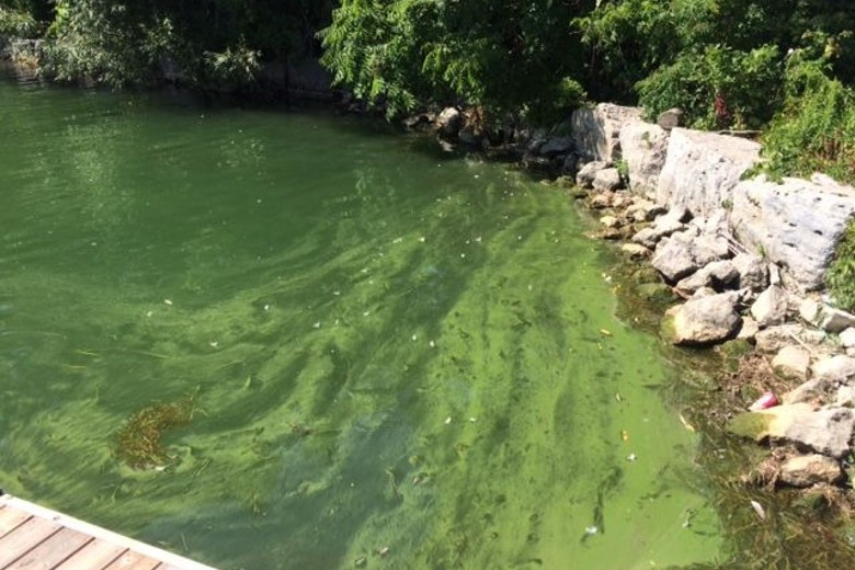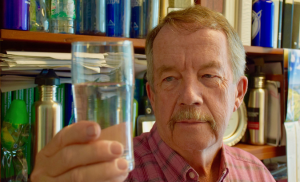Climate Change Impacts Urban Lake Ecosystems

A Colourful Contaminant
The effects of climate change are far reaching and impactful, affecting the largest glaciers to the smallest microorganisms. On World Water Day, the importance of preserving our oceans, lakes, and other water bodies is at the forefront of our efforts.
You may have visited a freshwater lake or small body of water and seen colourful blue-green layers on the surface, especially during the summer months. These layers, called blooms, result from the growth of a microorganism called cyanobateria. These blooms may pose a dangerous threat to aquatic ecosystems, as several types of cyanobacteria produce harmful toxins. Urban lakes, frequently visited by people and pets, are of particular concern since exposure to cyanobacteria toxins may result in illness.
Cyanobacteria thrive in warm temperatures. With global temperatures on the rise, the health of freshwater lakes and the people and pets that visit these lakes are of concern now more than ever.
Modelling the Impact of Rising Water Temperatures
Dr. Ed McBean, a Professor in the University of Guelph’s School of Engineering, developed a study together with the Credit Valley Conservation Authority to predict the future impact of cyanobacteria on an urban lake.
While there are many factors that influence the health of an aquatic ecosystem, water temperature is a key parameter. In the context of cyanobacteria blooms, warmer water means longer bloom durations, which could translate into higher levels of cyanobacteria toxins.
The team looked at water temperatures in Fairy Lake, located in Halton Region in Ontario. They began by developing a method for measuring water temperature at various locations and depths within the Lake. A model was applied to the data and predictions of water temperatures in 2050 were generated. They found that the number of hours per year where the temperature of the Lake exceeded 20 °C (the temperature that cyanobacteria flourishes in), would increase by 221-647 hours, depending on the specific location within the Lake. This translates to up to 39.7 per cent increase in cyanobacteria bloom duration.

The Future of Urban Lakes
The results from this study indicate that if current climate trends continue, we could see substantial increases in cyanobacteria blooms in future years. The health of lakes and the ecosystems that rely on them could be negatively impacted, with levels of toxins rising. Studies like this provide important information to better manage the effects of climate change.
“These findings are relevant to an important urban lake in the Halton Region, but the results also provide good insights into how climate change will impact other urban lakes,” explains McBean. “The next step is to work with government agencies to now go from a particular lake, to creating a general methodology that will be able to demonstrate the needs for urban lakes across the country.”
McBean thanks the Town of Halton, Halton Region, and the Credit Valley Conservation Authority for their participation with this study. “They have all been instrumental to making this research a reality.”
This story was written by Carley Miki as part of the Science Communicators: Research @ CEPS initiative. Miki is a PhD candidate in the Department of Physics under Dr. John Dutcher. Her research focus is on understanding the forces and interactions between soft, sugar-based nanoparticles and how they differ when charged.
The work on cyanobacteria is supported by the National Sciences and Engineering Research Council (NSERC) of Canada.
Bhatti, M., et. al. Climate change impacts on water temperatures in urban lakes: Implications for the growth of blue green algae in Fairy Lake. Water. 2024, 16(4), 587. doi: https://doi.org/10.3390/w16040587.